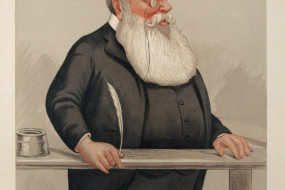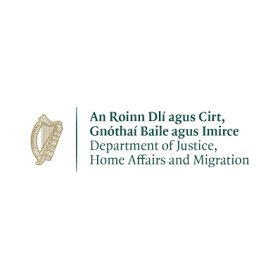Jill Gracey, senior associate at A&L Goodbody in Belfast, considers the issue of holiday pay from the perspective of employers. Almost every employer in Northern Ireland will be aware of the 'PSNI Holiday Pay case' as it progresses through the Northern Ireland courts.
Opinion
Ciarán Ahern, associate in employment law at A&L Goodbody, writes on the urgent need for new legislation following a recent court ruling on the citizenship process. Last year, more than 10,000 people were granted Irish citizenship. In light of developments in the High Court in the past tw
Nicholas Nolan, solicitor in the commercial property division at O'Reilly Stewart in Belfast, examines the legal implications of using flexible workspaces as opposed to more traditional leases. Establishing a new business can be a daunting prospect for many practical and financial reasons, one of th
On 30 June 1827, the nephew of a landlord was shot dead in Rathcannon, County Tipperary. Twenty-five-year-old Richard Chadwick was a magistrate and a land agent for his uncle, and had evicted a number of tenants in the Rathcannon area. He had also started building a police barracks in Rathcannon, an
Professor R. Daniel Kelemen, professor of political science and law and Jean Monnet chair in European Union politics at Rutgers University, writes on the change of leadership in the UK and the EU. The incoming President of the European Commission Ursula von der Leyen and the new Prime Minister of th
Employment law solicitor Richard Grogan of Richard Grogan & Associates considers recent cases illustrating the different means of recourse for pregnancy-related dismissal. In case ADJ18062, being a case of a waitress and a restaurant, the Adjudication Officer quoted the case of O'Brien –v-
Audrey Whyte, associate in the employment, immigration and reward team at Lewis Silkin in Dublin, writes on a recent Labour Court decision. A recent Labour Court decision reminds employers that they could be ordered to re-employ employees they have unfairly dismissed. Employers should also consider
On 25 October 1920, Terence MacSwiney died in London’s Brixton Prison after 74 days on hunger strike. MacSwiney was a republican poet and a playwright who was elected as MP for Mid-Cork in the 1918 general election, and one of the many TDs marked as ‘fé ghlas ag Gallaibh’ (i
Martin Burns, head of alternative dispute resolution (ADR) research and development at the Royal Institution of Chartered Surveyors, reflects on rule changes in the Northern Ireland courts. The High Court of Justice in Northern Ireland has issued a game-changing Practice Direction which affects all
Brendan Slattery, partner and head of environment and planning at McCann FitzGerald, considers recent court challenges to strategic housing developments. Last week, the third strategic housing decision to be challenged in the courts was quashed. Cairn Homes had its planning permission for 217 homes
Ronan Daly Jermyn partner Sean O'Reilly and Adam McCarthy consider the implications of smart contracts. There is a great deal of excitement surrounding smart contracts. Smart contracts have the potential to be traceable, transparent, and irreversible. As for security, they can record an indisputable
Richard Pigott was a journalist who worked with several nationalist newspapers across the island of Ireland, including the Ulsterman and the Nation. For most of his life, Pigott appeared to support the Fenian movement and had been imprisoned for seditious libels on the government during his career.
Mark O'Shaughnessy, partner in the litigation and dispute resolution team at ByrneWallace, writes on defamation and social media. 68% of Irish businesses have a social media account. Multiple tweets and Facebook posts are published by and about these businesses on a daily basis.
Employment law solicitor Richard Grogan of Richard Grogan & Associates clarifies some key points on the law of disability discrimination. The issue of disability discrimination arose in a case of Houses of the Oireachtas and Thomas Hickey EDA1918, where the Labour Court addressed this issue.
Karyn Harty, partner in dispute resolution and litigation at McCann FitzGerald, considers the impact of defamation reform in Britain on litigation in Ireland. Earlier this year, Newsbrands Ireland, the group representing many of Ireland’s newspaper titles, launched a campaign calling for refor


























